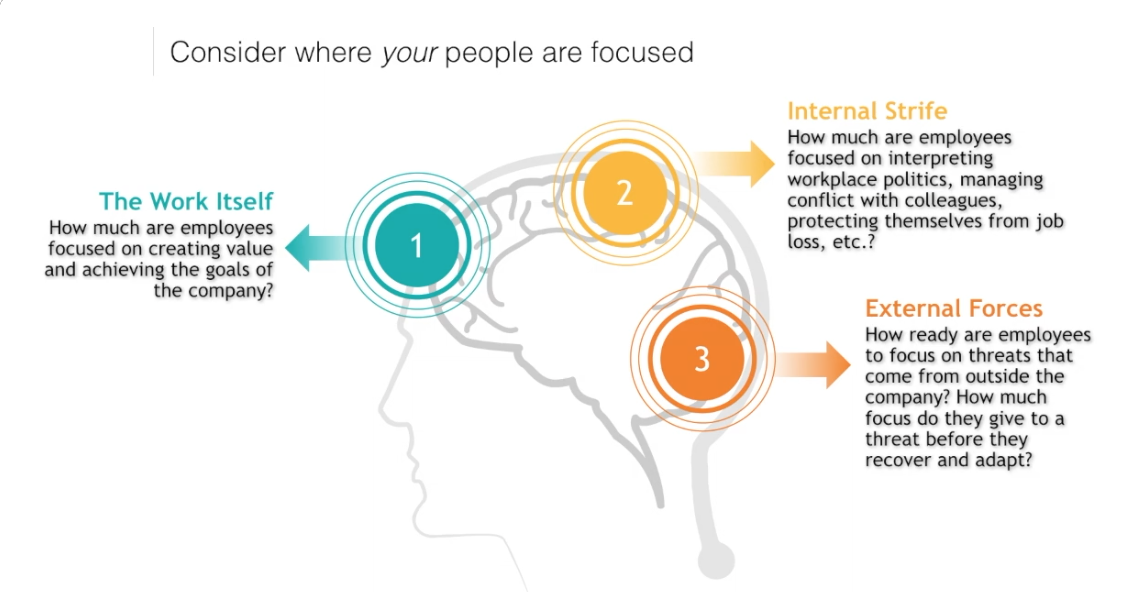
Give People What They Want
Sep 17, 2021Written by Roxanne Brown
In times of crisis (and change), leaders need to give people something constructive to do that’s not throwaway work. That’s what people want right now.
In normal times, the workforce has a much easier time deciding what they should focus on. A company’s values, mission, strategic objectives, and historical track record are the guide rails employees use to judge what’s important and make decisions about their priorities. Today, companies are making frequent, unexpected pivots to both survive and take advantage of new opportunities. Among other things, shifts in supplier relationships and customer buying patterns are influencing adjustments to long-established business models. For employees, this means those guide rails for knowing what’s important are less clear.
On top of which, employees are overloaded with making decisions about their safety. Employees are asking themselves these questions:
- (WFH policy) Will I be required to work from the office?
- (safety) What precautions will my company take to keep me safe in the office?
- (fairness) Will there be different WFH/safety rules for me than for other employees?
- (mistrust) Why are my colleagues being selfish and putting me at risk by not getting the vaccine?
- (choice) Why don’t my colleagues understand that getting the vaccine is my choice?
- (new trend) Will my company terminate me if I don’t get the vaccination?
- (options) Do I even like my job? What options do I have to go somewhere else?
People are forced to think about these questions they don’t want to think about at all. “For goodness sake, it’s work, I just want to focus on what I was hired to do!”
As a leader, your job is to settle these concerns and give the team something specific to do.
What happens when you don’t?
- Fearful employees keep their heads down, do the minimum required and wait for orders. Their outlook: Doing anything more seems wasteful and could get them in trouble.
- Ambitious employees make up work to do because they’re bored or just looking for something interesting (or distracting) to dive into. Their outlook: This is an opportunity to be creative and maybe stand out from the crowd.
- Others will seek like-minded people to join with to work on random projects. Their outlook: Being part of a community that’s creating something of value is a way of drawing energy, coping, and feeling safety in numbers.
Why does this happen?
Prolonged uncertainty and crisis breed a psychologically unsafe environment. When that happens people spend a lot of their brain energy focused on survival. On one end of the spectrum, the question employees ask is, “what must I do to be safe to survive this situation?” On the other end of the spectrum, the question they ask is, “what must I do to excel in this situation and reach my ambitious goals?” Every employee is asking themselves, “what’s the degree of risk and what are my options?”
Humans have a natural ability to construct stories to make sense of what’s happening so they can make sound decisions in answer to those questions.

What goes along with this is how people pay attention to leaders. When change is introduced, people pay more attention to what leaders say and do because it’s a signal of what’s expected of them. They’re simply trying to figure out how to succeed in the new world. This is also true with crisis situations: Employees pay more attention to those with influential power because the words and actions of leaders can feel unpredictable and have a real and significant impact on employees. Employees are on alert for that impact and are occupied with evaluating the options they have to survive or excel. With the proliferation of misinformation in recent times, the trust people place in their company’s leaders may be more significant and impactful than ever.
It’s time to be directive! Respectful, but directive. You don’t have to have all of the answers, you just need to be clear about what’s important and what’s not important and say it often. This may not be intuitive but in times of crisis, people look for guidance, clarity, and purpose from their leaders. Ambiguity and uncertainty over a long period create decision fatigue and anxiety. In crisis situations, what’s important is less clear to the workforce and they often spend more time debating that than creating value.
The more you can settle these questions and give them something constructive to do, the better.
For more on psychological safety, social capital, and their relationship to Joy at Work, click here.

